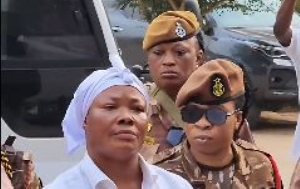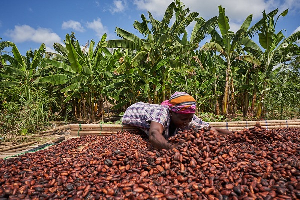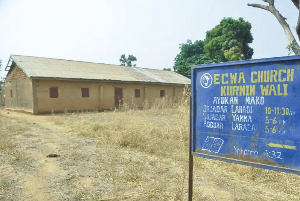A project that aims at providing support to the youth in Anlo and other selected coastal communities to strengthen their knowledge, skills, attitudes and ability to adapt to changes in the physical environment was launched in Accra on Monday.
Dr Elaine Lawson, Research Fellow at the Institute for Environment and Sanitation Studies, University of Ghana, said the project was expected to have an immediate impact on children, saying, “Children and the youth may have special roles to play in community education programmes.”
The project on the theme: “Halting the Menace; Improving the Management of Ghana’s Coast by Engaging and Empowering the Youth,” was developed based on the need for a sensitisation activity in Ghana, in response to the rate at which coastal natural resources were being degraded.
Dr Lawson explained that, benefits of targeting the youth would be immediate to long term since they would be empowered to be more involved in the decision making process, educate other youth, their parents and other adults and organise themselves to protect coastal natural resources which would eventually transform the community.
She said when the youth grow to adulthood they become difficult to change, hence the project is targeting and preparing the next generation to put things right.
Giving details of the project’s activities, Dr Lawson said there were five target communities, namely Tsokomey, in the Greater Accra Region, Akosua Village and Duakor in the Central Region, Anlo Beach in the Shama District of the Western Region and Anynui in the Ketu District of the Volta Region.
She said the team engaged in interactive programmes with the youth, support identified communities and schools, develop capacity to promote environmentally sustainable solutions.
Professor Chris Gordon, Acting Director of the Institute for Environmental and Sanitation Studies explained that, the project was part of their vision to facilitate environmental and developmental issues.
He said the national capacity to ensure wise management of environmental and sanitation challenges was over-stretched, hence the need to train and educate the necessary human capacity to effectively manage the environment sustainably.
Mr Ralf Wittek, an Official of Hanns Seidel Foundation, sponsors of the project said, it was supporting the programme because they were concerned with civic education, especially, on the environment.
He said the understanding of effective environmental management was often limited, especially among migrated coastal fishing communities who were frequently neglected of public initiatives and that such communities possessed lower average educational level and faced greater challenges to be an active part of civil society.
Mr Wittek said the focus was on the youth of five Anlo communities with the goal to enhance their environmental awareness and empower them to be more involved in the governmental decision-making processes.
He urged politicians and policy makers to have the will to take decisions that benefits the country.**
Regional News of Monday, 2 April 2012
Source: GNA
Youth in Environmental Management Project launched
Entertainment











